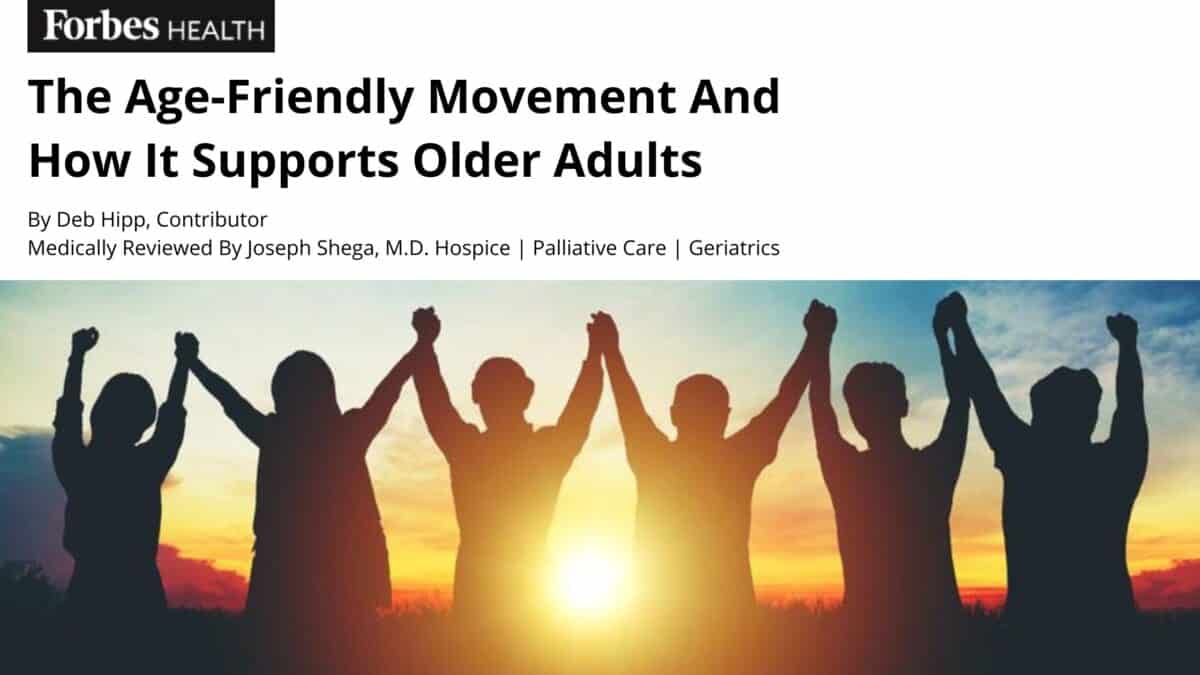In 2006, the World Health Organization (WHO) started the global age-friendly movement, an initiative to create livable communities that are inviting and accessible for people of all ages— especially older adults.
As part of the age-friendly movement in the U.S., age-friendly cities, states and communities implement programs and infrastructure features that help older adults thrive and remain socially active as they age.
In age-friendly communities, employers practice workplace equality and value older workers. Meanwhile, hospitals and health care systems are designed to meet the specific needs of older adults and their caregivers. Age-friendly communities offer other elements to enhance the lives of older adults as well, providing support systems for physical and mental health as they age.
Read on to learn more about the age-friendly movement (including an interview with the Age-Friendly Institute’s President Tim Driver) and how it works to support the needs of older adults worldwide.
Click HERE to read the full story in Forbes. You can learn more about the CAFE program HERE.

